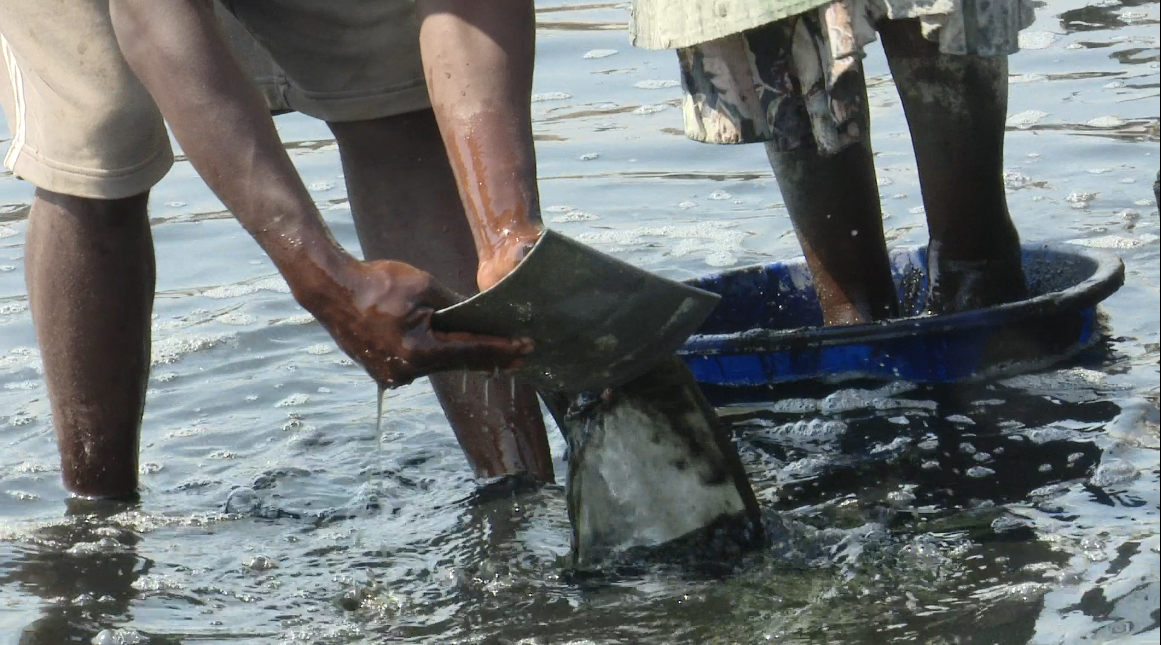Prime
What you say can make or break children

Result. A street child carries her sibling on Jinja Road in Kampala on September 24, 2014. Many children end up on streets due to several forms of violence such as emotional, physical or psychological torture back at home. PHOTO BY MICHAEL KAKUMIRIZI.
What you need to know:
- Child abuse: Abuse towards children involves different forms including blaming, shouting, screaming and intimidation.
- Often termed as either emotional or psychological violence, Esther Oluka looks at the statistics and what kind of impact this abuse has on children.
Children (however adorable and sweet they are) sometimes unleash annoying inexcusable behaviour. And to accord punishment, an adult may decide to either bark, smack or shout at the child.
Barking or shouting are some of the forms of emotional violence. According to the World Health Organisation (WHO), emotional or psychological violence includes restricting a child’s movements, ridicule, threats and intimidation, discrimination, rejection and other non-physical forms of hostile treatment.
Findings from the Uganda violence against children survey report released last month reveal that one in three Ugandans have experienced emotional violence during their childhood.
Data from the same study show that boys in central region have experienced significantly higher prevalence of emotional violence than their counterparts in the northern and western regions.
For 18 to 24-year-old females, the most common perpetrator of emotional violence in their childhood was their mother or stepmother. Meanwhile, for the boys, it was the mother or stepmother or the father or stepfather.
A child’s story
After his parents separated in 2015, Peter Opio, (not real name) tagged along with his father to Mukono District while his mother remained behind in Pallisa District.
“I did not have a choice because daddy was the one paying my school fees,” says the now 13-year-old Opio, an only child from his parents.
Five months down the road, after the move to Mukono District, his father married another woman. Inevitably, she became Opio’s step mother.
“That woman liked abusing me,” says Opio, adding, “She enjoyed describing me as useless like my mother and that was why my father left her. Sometimes, she would say I have an empty big head full of porridge.”
One day in 2017, when the verbal abuses escalated, Opio ran away from home and sought refuge in a near-by church. A clergyman later helped re-connect him with his mother in Pallisa.
Expert’s view
Timothy Opodo, the child protection manager at ChildFund International (Uganda), says emotional violence is a dangerous form of non-physical violence whose effects may be carried on into adulthood.
“For example, if a child is continuously told that they are useless or worthless, they will grow up with the kind of mentality that they are not good enough for anything,” Opodo says.
Opodo adds that such children often develop issues such as low self-esteem.
Similarly, Jean Kyomugisha Nuwagaba, a counselling psychologist at care counselling centre in Bukoto-Kisasi, Kampala, says many times, children like to be appreciated, especially by their parents.
When this does not happen and they are instead criticised, they feel disappointed and frustrated.
“Psychological violence has a number of other effects it causes to a child. For instance, the relationship between a child and parent can easily become broken. The child may end up disliking their own parent or even feel insecure around them,” says Nuwagaba.
In some cases, some children may start avoiding their own parents.
“For example, teenagers may start leaning more on their friends than their parents,” adds Nuwagaba.
The trauma from psychological abuse may also force a child to contemplate suicide or run away from home. Nuwagaba says perpetrators should stop inflicting emotional violence on children.
Emotional violence in the country
Findings from an October 2012 released research on violence against children reveals that several challenges undermine effective investigation of cases of violence against children. Some of these include limited functionality of the different structures in the justice system, financial difficulties, children’s lack of awareness about their rights and poor technical competence, especially among the grassroots child protection duty bearers, among others.
Nuwagaba encourages children affected by emotional violence to always find a trusted adult to confide in about the abuse. This could be a church leader, teacher, relative or school counsellor.
“After listening to a child, these trusted adults or authorities may then decide on the next course of action. For example, they may take the youngster to a safer environment, get for them professional counselling services or give them hope by reassuring their safety,” she says.
The other ways of helping the affected child may include giving them coping skills or rebuilding their self-esteem.
The toll free helpline to call purposely for reporting any forms of violence directed towards children is 116.
Some of the children laws
•The Constitution of the Republic of Uganda (1995) provides for specific protection of children (Article 34) with the establishment providing for the specific rights of children, including the right to know and be cared for by their parents or other people.
•The Children Act, Chapter 59, emphasises the protection of children by upholding their rights, protection, duties, and responsibilities as contained in the Convention on Rights of the Child and the Organisation for African Unity Charter on the Rights and Welfare of the African Child, with appropriate modification to suit the circumstances in Uganda and other international and regional instruments.
•The National Council for Children Act-chapter 60, for instance provides a structure and mechanism for the proper coordination, monitoring and evaluation of all policies and programmes relating to the survival, protection and development of children in Uganda.
(The laws are extracted from the United Nations Children’s Fund (Unicef) simplified handbook on international and national laws and policies on children)




